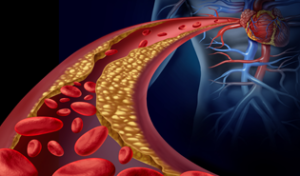


Coronary Artery Disease Detector
The Military & Health Research Foundation (MHRF) was proud to announce the award of a Cooperative Agreement for the Advanced Development & Commercialization of the CAD-det System from the Department of the Interior in support of the Air Force Medical Service (AFMS) mandate to enable readiness, health and force protection of the warfighter.
The technology development goal of the SonoMedica (now AusculSciences, Inc.) CAD-det is the development and evaluation of a completely safe, non-invasive, non-stressful, portable device that allows for the assessment of symptomatic patients who have proven indicators for Coronary Artery Disease (CAD). Our mission is to improve the early detection and treatment of cardiovascular diseases in order to minimize or eliminate the damage done to the heart. This sophisticated acoustic technology will be made available to our USAF customer, to detect those who have CAD, as well as predict pilots at risk for the disease, sooner than conventionally possible.
The AusculSciences CAD-det is a computerized electronic stethoscope an early version of which obtained clearance under Class II FDA 510(K) regulations to detect heart sounds using ultra-sensitive electronic technology for detecting and classifying pulsatile noise emissions from coronary arteries. The CAD-det test is very low risk to patients, similar to that of an electro-cardiograph (ECG); however, the CAD-det test is completely non-invasive and provides the necessary diagnostic information in less than ten minutes. For purposes of further developing the CAD-det under this award, MHRF will work closely with the University of Ottawa Heart Institute (UOHI), one of the top cardiac research centers in the world.
As part of this development project, scientists and engineers will explore the scientific and technical merit aspects of the biophysics of auscultation, the effects of body issues such as obesity, gender morphology and other factors affecting signal acquisition and interpretation. There will be exploration of the effects of different tissue types, their impact on signal attenuation, reflection, benefits of simultaneous signal acquisition by multiple sensors and the development of algorithms to improve interpretation of said signals, thereby improving the Sensitivity and Specificity of the CAD-det test. AusculSciences’ (then Sonomedica) most recent clinical trial, a 200-patient Institutional Review Board (IRB)-approved study at North Shore University Hospital, was peer-reviewed and published in the American Journal of Cardiology in March 2013 (“Utility of an Advanced Digital Electronic Stethoscope in Diagnosis of Coronary Artery Disease Compared with Coronary Computed Tomographic Angiography”; Makaryus, et. al) which demonstrated to an extremely high level of statistical significance that the CSA (now CAD-det) prototype device performed well in detection of CAD vs. CT angiography.
The MHRF effort will effectively facilitate the advancement of CAD-det development through a fiduciary mechanism that enables the Department of Defense (DoD) and MHRF to support these goals through financial, non-monetary support and infrastructure such as specialized professional medical, biomedical, engineering, legal and regulatory subject matter expertise in the disciplines of research, technology development, engineering, technology assessment and demonstration efforts and access to DoD, Academic, Public and Commercial assets and capabilities.
The MHRF approach to achieving product excellence is to follow well-established routines of best-management practices and to define product requirements in a comprehensive Product Specification and in sub-tier Technical Specifications. The engineers ensure the development of process quality control systems for manufacturability, performance and reliability, and develop strategies for data handling and integration with health information systems. MHRF conducts assessments of manufacturing and defense industrial base capability requirements for commercialization of technologies. Our manufacturing and commercialization specialists conduct supply chain planning, materials qualification and inventory considerations, as well as identifying sustainability and life-cycle management requirements and associated cost drivers. The MHRF Quality Assurance function is empowered to audit and assess all elements of the organization to ensure compliance in accordance with medical device industry recognized quality management system standards for ISO 13485 and meet FDA Quality System Regulations 21CFR820 requirements.
